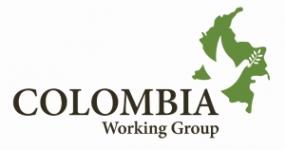The Colombia Working Group (CWG) welcomes the news that the Colombian government and the Revolutionary Armed Forces of Colombia (FARC) have reached a historic, final and definitive peace accord. The CWG and its members, many of whom have been working with Colombian civil society groups for years in peace building, see this as an important milestone towards peace.
Many Colombians are celebrating the ground breaking agreement which covers issues of land reform, curtailment of the drug trade, reparation to victims’ families, trials for those suspected of human rights abuses and an end to the conflict between both parties; a conflict that has resulted in the death of hundreds of thousands of people and the forcible displacement of over six million, as well as the threatening and imprisonment of many others, including human rights workers, trade unionists, Afro-Colombian and Indigenous leaders.
The formal negotiations have concluded but there are still steps to be taken before the deal can be considered binding. The FARC leadership has to present the final agreement to its memberships for final approval which is expected to take place later this year. The leaders of the FARC have said they intend to enter politics, and will begin organizing a political party to take part in national elections starting in 2018. To support the transition the FARC will be guaranteed 10 seats in the bicameral congress no matter how much of the popular vote they receive from 2018 to 2026.
President Santos has announced a national plebiscite on the agreement to take place on October 2, 2016. At least 13% of the electorate must vote “yes” in order for the government to be bound to implement the accords. A recent poll by the firm Cifras y Conceptos shows that 74% of Colombians polled are in favour of and would approve the accord.
Both sides have agreed to work together to address social exclusion and bring about a lasting peace. Although this is truly historical, it is critical that civil society in Colombia and the international community remain vigilant to ensure fulfillment of the agreements. This is especially concerning in the context where the Santos government had failed to honour previous agreements with other sectors in Colombia like the ones agreed to during the 2014 agrarian strike. It is equally important that the Santos government undertake public and genuine peace negotiations with the National Liberation Army (ELN), Colombia’s second largest guerrilla organization. The continued presence and violent activities of right-wing paramilitaries and other illegal armed actors is a serious problem that stands in the way of a lasting peace in Colombia. It is imperative that the Santos government addresses this sinister phenomenon and dismantles these structures and their connections to powerful political and economic actors in the country.
The end of the armed conflict does not necessarily mean an end to the social conflict which can be seen in the continuing high levels of violence, inequality, impunity, and militarization which are at the root of the problems. To achieve a lasting peace with social justice, Colombia must deepen its democratic institutions and undertake profound social and economic reforms to eliminate the endemic social inequality and ensure access to basic services like education, healthcare and public services for all Colombians.
The Colombia Working Group is a platform of Canadian unions, NGOs, and social organizations focused on human rights in Colombia.
